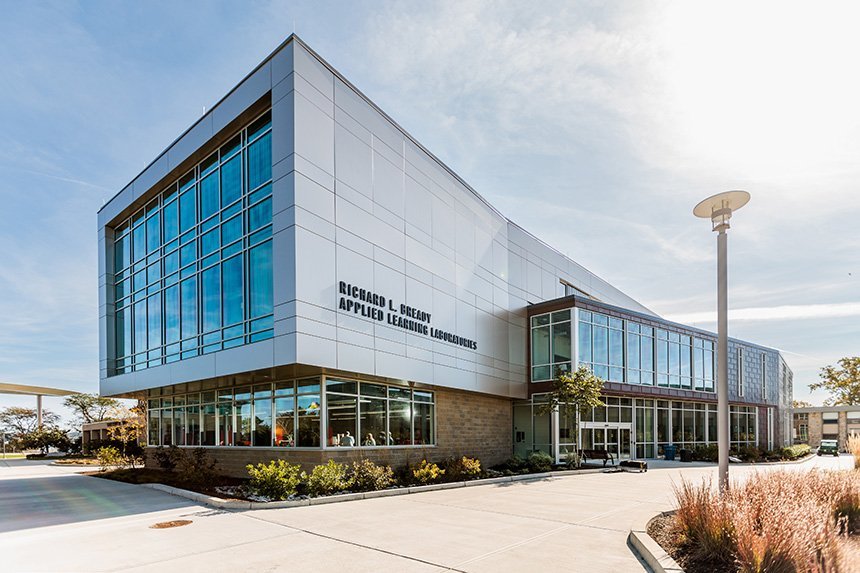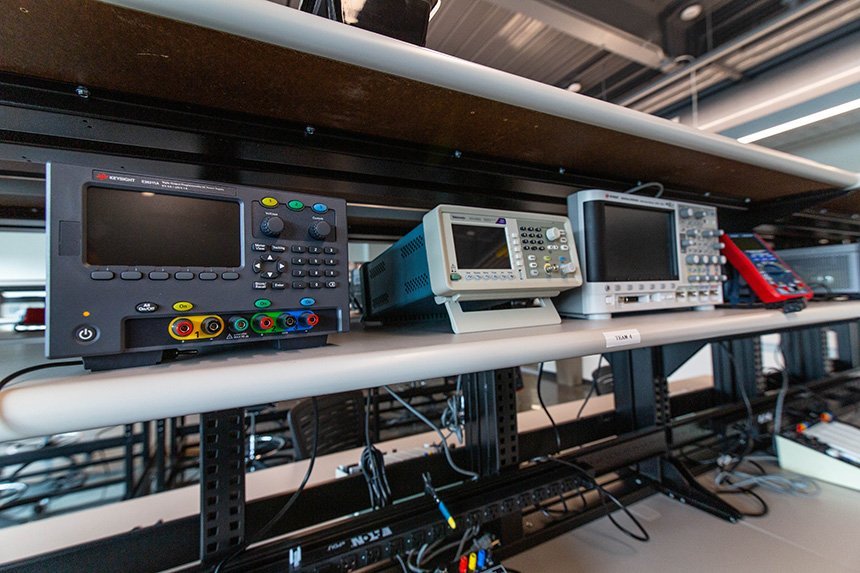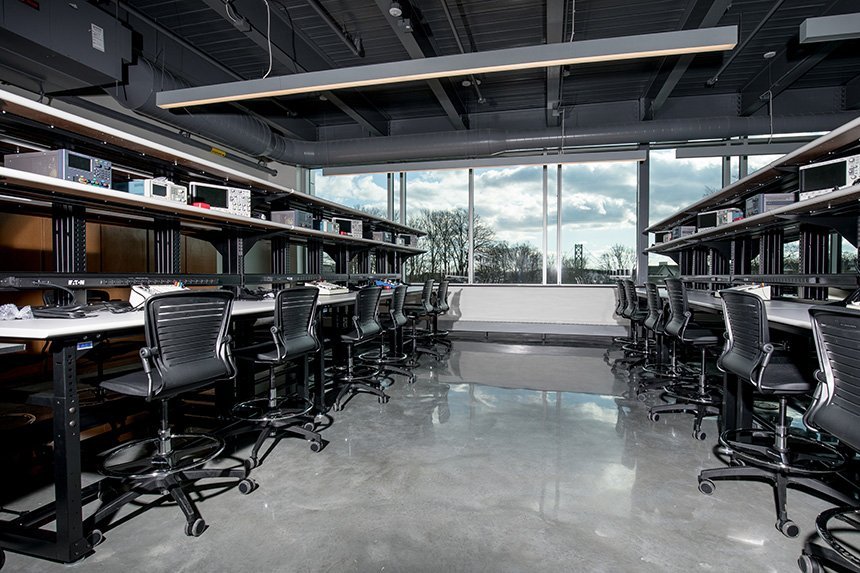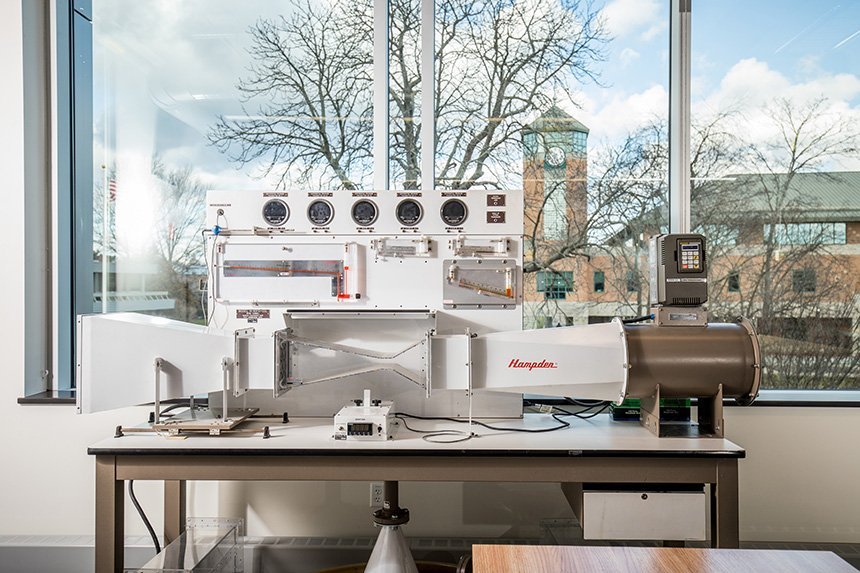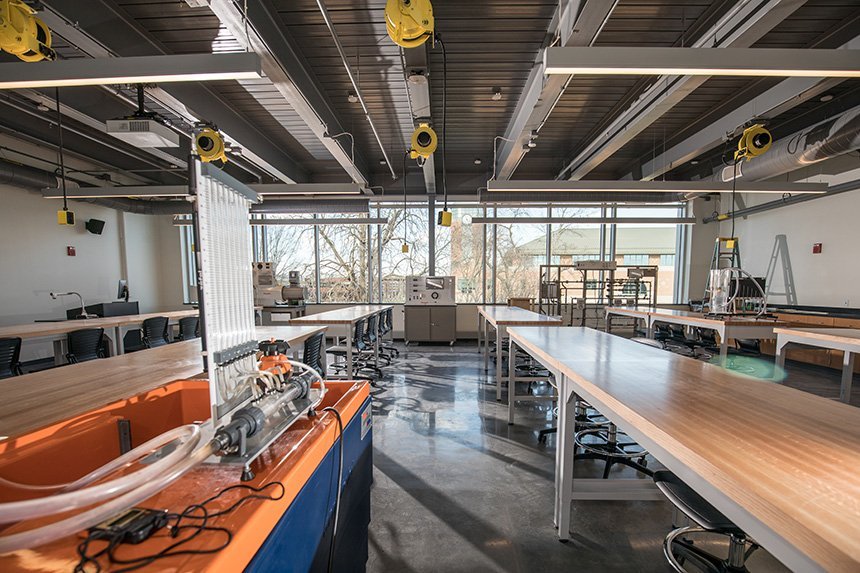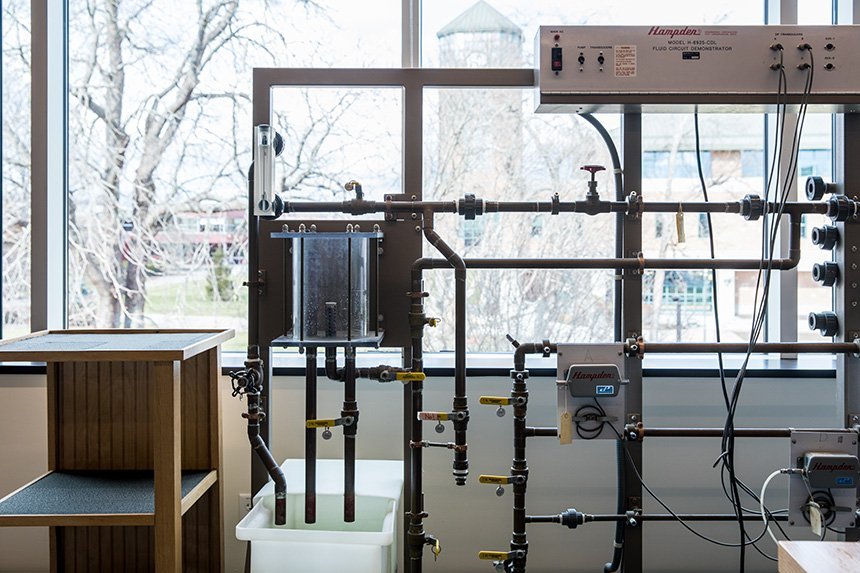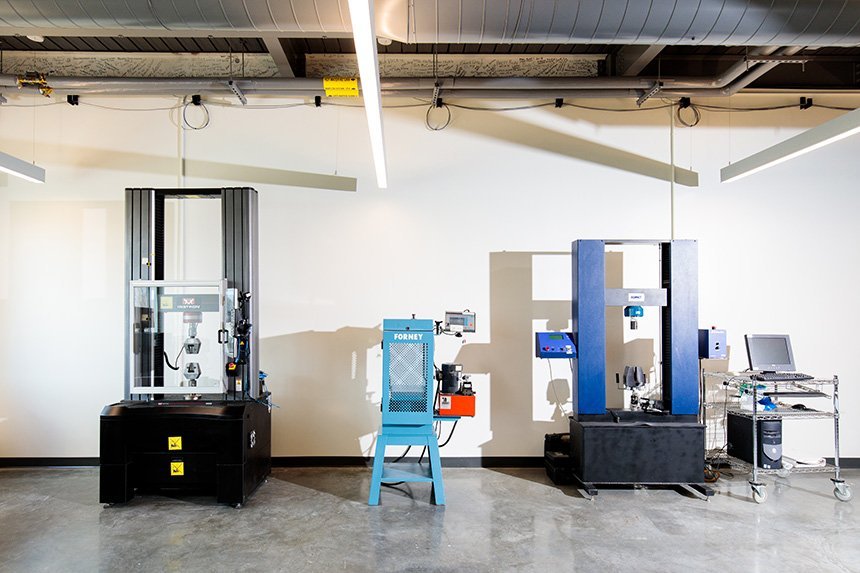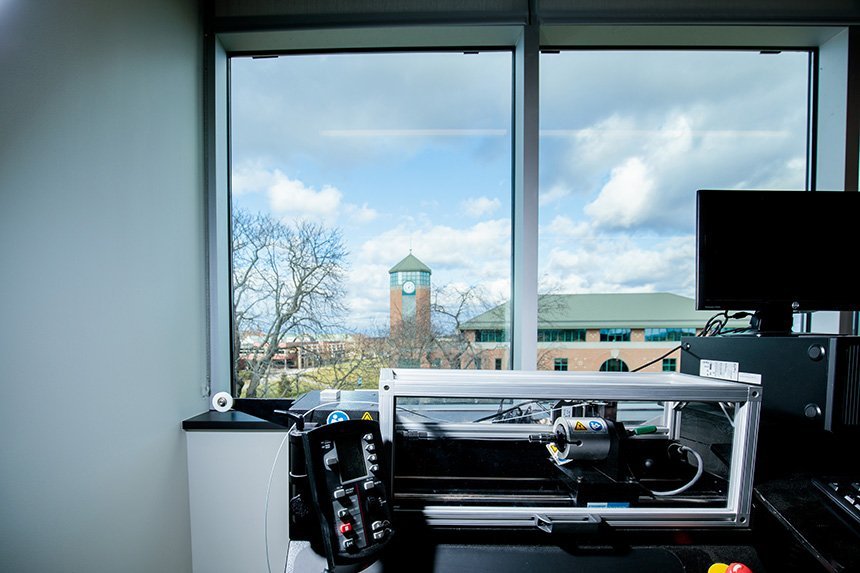Electrical Engineering
The Electrical Engineering specialization at Roger Williams University prepares students for career success. In a world where technology is constantly growing and evolving, Electrical Engineering is becoming more essential, from lighting and wiring in buildings to electric motors for automobiles.
The Electrical Engineering Specialization is part of our Engineering Program, which is accredited by the Engineering Accreditation Commission of ABET under the General Criteria.
Engineering Program Educational Objectives
Three to five years after graduation, we expect our graduates to:
- Possess an inquisitive mind, demonstrate excellence in technical knowledge and skills, achieve success as a practicing engineer or graduate student, and apply the highest ethical standards in all pursuits.
- Value the concept of, and demonstrate through practice, activities and actions that contribute to continual intellectual growth.
- Advance the engineering profession by becoming actively involved in professional associations and societies, serving in professional and community volunteer positions, acting as a role model for the future generation of engineers, and assisting the SECCM Engineering Program in achieving its mission and goals
NASA-Funded Undergraduate Research
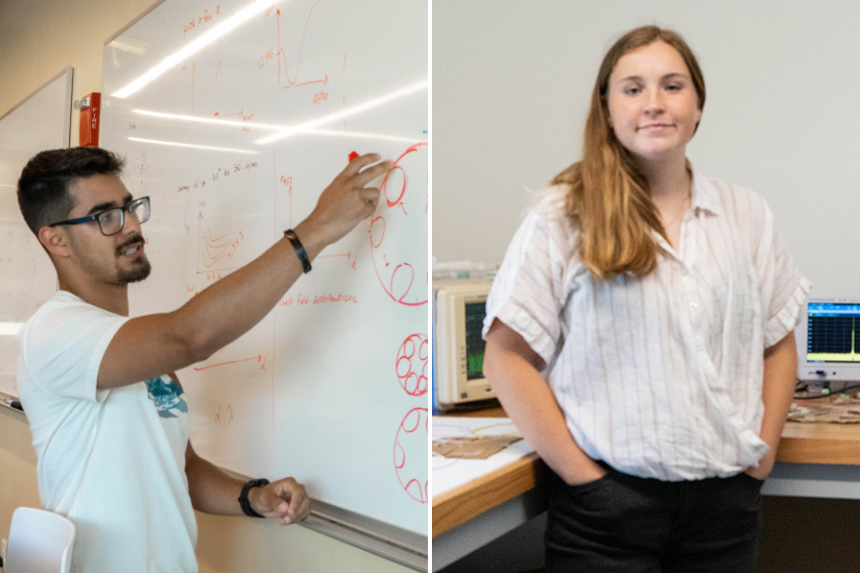
Two undergraduate Engineering students spent the summer working on cutting-edge lasers research, funded by the National Aeronautics and Space Administration. Senior Santiago Armas and junior Hunter Phillips, both Engineering majors with Electrical specializations and minors in Mathematics, received prestigious summer research scholarships from the NASA Rhode Island Space Grant Consortium. Assistant Professor of Engineering Ahmet Akosman, whose areas of expertise include lasers and fiber optics, served as their advisor. This valuable hands-on research experience will set the students apart when applying for jobs or graduate school after Roger.
Degree Requirements
Train for the Future of Engineering
Our program is unique: by providing a broad Engineering education, students are well-versed in a variety of areas, allowing them to work with engineers from all backgrounds and fields. This is the future of the Engineering industry.
Learn more from Dean Robert Griffin:
Senior Design Project
The Senior Design Project is a fundamental element of senior year. Much like the cross-discipline work that will be in their future careers, the design of our students’ senior projects integrates math, science, computer science, and engineering principles into a comprehensive, client-based engineering design project. Student teams work with faculty advisors to design and fabricate solutions to open-ended problems and present their projects at professional conferences and competitions.
Engineering State-of-the-Art Facilities
The newest building on the Bristol campus, the Richard L. Bready Applied Learning Laboratories is designed to foster collaboration and innovation while offering high-tech resources for experiential learning. The three-floor, 27,325-square-foot building features seven cutting-edge laboratories, senior design project rooms and open spaces dedicated to hands-on education.
4+1 Master's Program Partnership with UMass Dartmouth
RWU and UMass Dartmouth have partnered to provide joint accelerated master's programs in Electrical Engineering, Computer Engineering, and Civil Engineering.
RWU engineering students can take two courses their senior year and apply those 6 credits to one of 3 UMass master’s in engineering degrees – civil, computer or electrical, allowing them to complete both degrees in five years.
This unique opportunity offers students an efficient and cost-effective pathway to reach their academic goals and begin careers in high-demand fields.
Students interested in the accelerated BS/MS programs may consult their program coordinator or dean about eligibility and the application process.
Receive Professional Recognition
Our students are encouraged and supported to take the Fundamentals of Engineering exam and become an Engineer In Training (EIT), a professional designation from the National Council of Examiners for Engineering and Surveying (NCEES) and a key step toward licensure as a Professional Engineer.
Alumni Share Their Experiences
"The Electrical Engineering courses I took gave me a very good basis to build off, and I like that I was able to get an interdisciplinary engineering experience. I won't be working on a project that's strictly electrical. There will be mechanical components, and having that background of knowing how things work is really helpful. That's one of the reasons I chose Roger."
Daniella Giannotti '22
Major: Electrical Engineering
Integration and Test Engineer at L3Harris Technologies in North Amityville, N.Y.
Ways to Get Involved
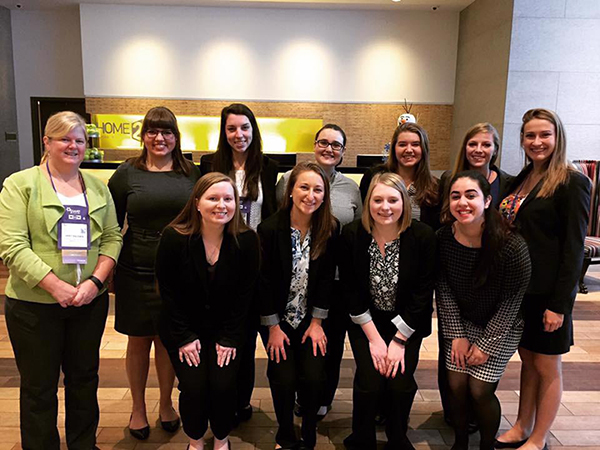 Society of Women Engineers
Society of Women Engineers
RWU's chapter of the Society of Women Engineers provides opportunities for women students to build community and connect with faculty mentors and industry professionals to advance women in engineering. Students travel to the Society of Women Engineers Conference, making industry connections that lead to success after graduation.
Each year, SWE brings scores of fourth-grade girls to campus for a hands-on engineering lesson that helps them earn a Girl Scouts badge.
- In Fall 2020, women students accounted for 49% of all students in STEM majors, which includes the sciences, math, engineering, and computer science
- 41% of tenured and tenure-track Natural Science, Computer Science, Engineering, and Mathematics professors are women, ahead of the national average of 36%
Engineers Without Borders
RWU's Engineers Without Borders chapter focuses on community based projects by providing an engineering solution. Throughout the school year, students and faculty collaborate to plan, design, and prototype for upcoming projects. They also take part in various local engineering projects. In recent years, EWB has traveled with The Foundation of the International Medical Relief of Children (FIMRC); their first trip was in 2016 to Dajabon, Dominican Republic.
Electrical and Computer Engineering Club
As part of RWU's Institute for Electrical and Electronic Engineers, members participate in professional development, social outings, basic electronic activities, and discussions about technology. IEEE is the world’s largest professional association dedicated to advancing technological innovation and excellence for the benefit of humanity, and its members are engineers, scientists, and allied professionals whose technical interests are rooted in electrical and computer sciences, engineering, and related disciplines.
Robotics Innovation
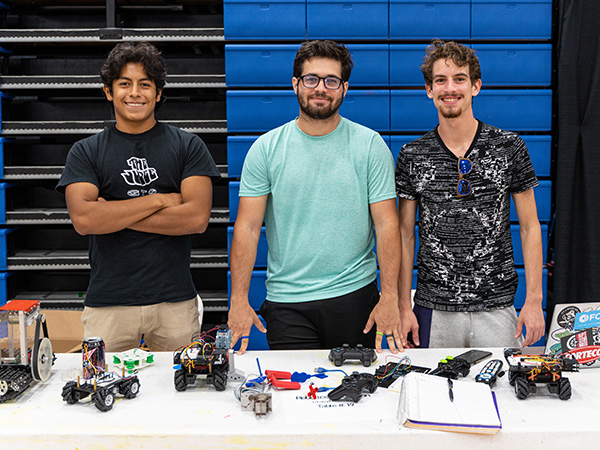 The goal of the Robotics Innovation club is to gather passion-driven students of all academic years who wish to innovate and gain hands-on experience in the fundamentals of building robots with kits and previous pre-existing projects. Students can participate in robotics/innovation competitions, conferences, and more. Robotics Innovation encourages both engineers and technology-interested non-engineers to share the passion for robotics and innovation.
The goal of the Robotics Innovation club is to gather passion-driven students of all academic years who wish to innovate and gain hands-on experience in the fundamentals of building robots with kits and previous pre-existing projects. Students can participate in robotics/innovation competitions, conferences, and more. Robotics Innovation encourages both engineers and technology-interested non-engineers to share the passion for robotics and innovation.
Multicultural STEM Alliance
The Multicultural STEM Alliance aims to strengthen the sense of community among students of color in STEM majors at RWU by offering activities, mentorship, and networking opportunities at and outside of the university.


